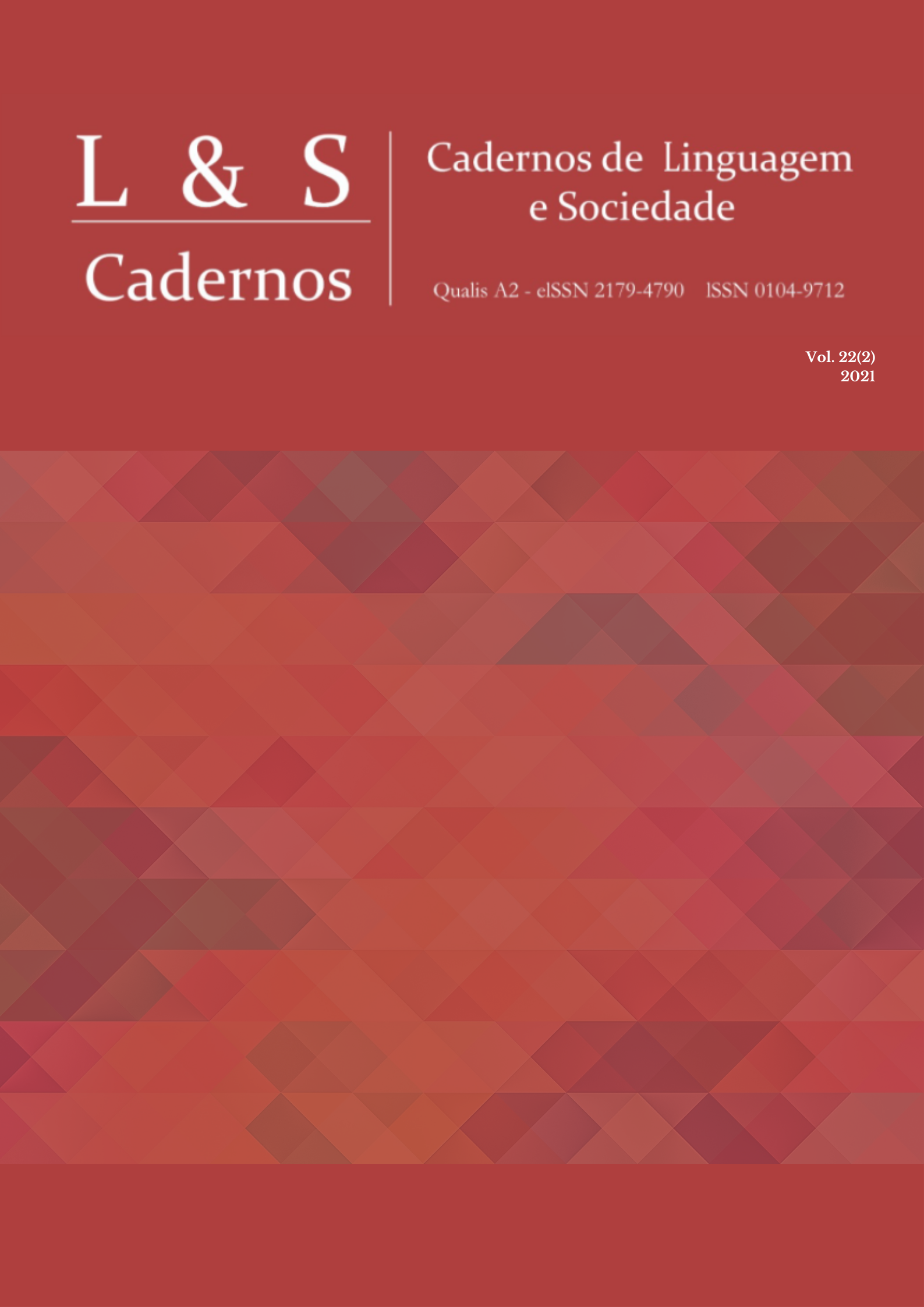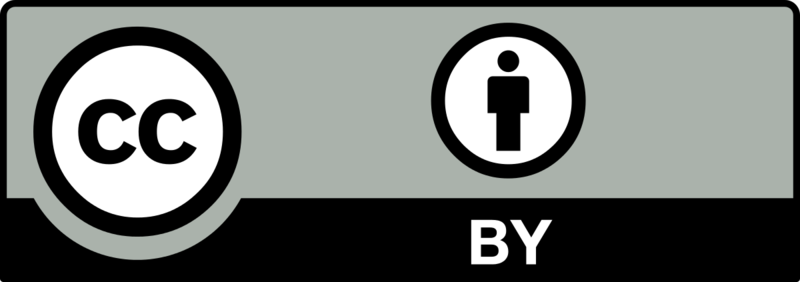About the right to be (multiple): in favor of some extended linguistic education in context of deafness
DOI:
https://doi.org/10.26512/les.v22i2.40856Keywords:
Linguistic education, Deaf, Translanguaging, Literacies, RightsAbstract
This work aims to discuss the importance of revisiting the linguistic education of deaf with a broader perspective and the urgency of seeking ways to recontextualize proposals based on more renewed, open, and multiple visions. For this, we seek to reflect on issues that justify the defense of an extended linguistic education in the context of deafness and show the contributions of some epistemological foundations for this education. We believe that linguistic education conceived from plural and mobile perspectives can better contribute to the full human development and linguistic formation of deaf people and ensure their linguistic rights.
Downloads
References
AMORIM, M. A. C. O processo ensino-aprendizagem do português como segunda língua para surdos: os elementos conectores conjuntivos. Tese (Doutorado). Rio de Janeiro: PUC-Rio, Departamento de Letras, 2004.
ANDREIS-WITKOSKI, S.; DOUETTES, B. Educação bilíngue de surdos: implicações metodológicas e curriculares. In: ANDREIS-WITKOSKI, S.; FILIETAZ, R. P. (org.). Educação de surdos em debate. 1 ed. Curitiba: Ed. UFPR, 2014, p. 41-51.
BAKER, C. Sign Language and the Deaf Community. In: FISHMAN, J. (org.). Handbook of Language and Ethic Identity. New York; Oxford: University Press, 1999.
BRASIL. Lei nº 14.191, de 3 de agosto de 2021. Altera a Lei nº 9.394, de 20 de dezembro de 1996 (Lei de Diretrizes e Bases da Educação Nacional), para dispor sobre a modalidade de educação bilíngue de surdos. Diário Oficial [da] República Federativa do Brasil, Brasília, DF, 4 de agosto de 2021. Disponível em: http://www.planalto.gov.br/ccivil_03/_ato2019-2022/2021/Lei/L14191.htm. Acesso em: 19 ago. 2021.
BRASIL. Decreto nº 10.502, de 30 de setembro de 2020. Institui a Política Nacional de Educação Especial: Equitativa, Inclusiva e com Aprendizado ao Longo da Vida. Diário Oficial [da] República Federativa do Brasil, Brasília, DF, 01 de out. 2020. Disponível em: http://www.planalto. gov.br/ccivil_03/_ato2019-2022/2020/decreto/D10502.htm. Acesso em: 11 mar. 2021.
BRASIL. Lei Federal nº 13.005, de 25 de junho de 2014. Aprova o Plano Nacional de Educação - PNE e dá outras providências. Diário Oficial [da] República Federativa do Brasil, Brasília, DF, 25 jun. 2014. Disponível em: http://www.planalto.gov.br/ccivil_03/_ato2011-2014/2014 /lei/l13005.h tm. Acesso em: 15 ago. 2017.
BRASIL. Decreto nº 5.626, de 22 de dezembro de 2005. Regulamenta a Lei nº 10.436, de 24 de abril de 2002, que dispõe sobre a Língua Brasileira de Sinais - Libras, e o art. 18 da Lei no 10.098, de 19 de dezembro de 2000. Diário Oficial [da] República Federativa do Brasil, Brasília, DF, 23 dez. 2005. Disponível em: http://www.planalto.gov .br/ccivil_03/_Ato2004 2006/2005/ Decreto/ D5626.htm. Acesso em: 15 ago. 2017.
CANAGARAJAH, S. Translingual Practice as Spatial Repertoires: Expanding the Paradigm beyond Structuralist Orientations. Applied Linguistics, v. 39, n. 1, p. 31-54, 2017.
CAVALCANTI, M. C.; SILVA, I. R. Transidiomatic practices in a deaf-hearing scenario and language ideologies. Revista da Anpoll, n. 40, p. 33-45, Florianópolis, jan./jun., 2016.
CAVALCANTI, M. C. Educação linguística na formação de professores de línguas: intercompreensão e práticas translíngues. In: MOITA LOPES, L. P. da. Linguística Aplicada na modernidade recente. São Paulo: Parábola, 2013, p. 211-226.
FERNANDES, S.; MOREIRA, L. C. Políticas de educação bilíngue para estudantes surdos: contribuições ao letramento acadêmico no ensino superior. Educar em Revista, Curitiba, Brasil, ed. esp., n. 3, p. 127-150, dez. 2017.
FERNANDES, S.; MOREIRA, L. C. Políticas de educação bilíngue para surdos: o contexto brasileiro. Educar em Revista, Curitiba, Brasil, ed. esp., n. 2, p. 51-69, 2014.
FREIRE, P. Pedagogia da autonomia: Saberes necessários à prática educativa. 25. ed. São Paulo: Paz e Terra, 1996.
GARCÍA, O.; JOHNSON, S.; SELTZER, K. The Translanguaging classroom. Leveraging student bilingualism for learning. Philadelphia: Caslon, 2017.
GARCÍA, O.; LI WEI. Translanguaging: Language, Bilingualism and Education. N. Y.: Palgrave Macmillan, 2014.
KALANTZIS, M.; COPE, B. On globalization and diversity. Computer & Compositons, 23, p. 402-411, 2006.
LANKSHEAR, C.; KNOBEL, M. Sampling “the New” in New Literacies. In: KNOBEL, M.; LANKSHEAR, C. (org.). A new literacies sampler. N.Y.: Peter Lang, 2007, p. 1-24.
LIMA, H. J. de; REZENDE, T. F. Escritas em português por surdos (as) como práticas de translinguajamentos em contextos de transmodalidade. Revista Educação Especial, Santa Maria, v. 32, p. 1-19, 2019.
LUKE, A. Defining critical literacy. In: PANDYA, J. Z.; ÁVILA, J. Moving critical literacies forward: a new look at praxis across contexts. N. Y.: Routledge, 2014, p. 19-31.
LUKE, A. Regrounding critical literacy: representation, facts and reality. In: HAWKINS, M.R. Framing languages and literacies: socially situated views and perspectives. N. Y.: Routledge, 2013, p. 136-148.
MEGALE, A. Bilinguismo e Educação Bilíngue. In: MEGALE, A. (org.). Educação Bilíngue no Brasil. São Paulo: Fundação Santillana, 2019, p. 15- 27.
MILLS, K. A. Literacy Theories for the Digital Age: Social, Critical, Multimodal, Spatial, material and Sensory Lenses. Bristol/Buffalo/Toronto: Multilingual Matters, 2016.
MILLS, C. W. The Sociological Imagination. New York: Oxford University Press, 1959.
NOGUEIRA, A. S. Interface do português com a língua de sinais em publicações de um professor surdo em rede social. Linguagem em (Dis)curso, v. 18, n. 3, p. 673-694, out. 2018.
OTHEGUY, R.; GARCÍA, O.; REID, W. A translanguaging view of the linguistic system of bilinguals. Applied Linguistics Review, p. 1-27, 2018.
OTHEGUY, R.; GARCÍA, O.; REID, W. Clarifying translanguaging and deconstructing named languages: A perspective from linguistics. Applied Linguistics Review, v. 6, n. 3, p. 281-307, 2015.
Organização das Nações Unidas - ONU. Assembleia Geral das Nações Unidas. Declaração Universal dos Direitos Humanos. 1948. Disponível em: http://www.ct.ufpb.br/lacesse/contents/ documentos/legislacao-internacional/declaracao-universal-dos-direitos-humanos-1948.pdf/view. Acesso em: 27 ago. 2021.
PEREIRA, D. C. M.; MUNIZ, V. C. Letramentos em L2 da educação superior de surdos: diálogos multimodais. In: BARROS, A. L. E. C.; CALIXTO, H. R. S.; NEGREIROS, K. A. (org.). Libras em diálogo: interfaces com o ensino. Campinas: Pontes, 2018, p. 25-40.
PERLIN, G. Identidades surdas. In: SKLIAR, C. (org.). A surdez: um olhar sobre as diferenças. Porto Alegre: Mediação, 2016.
POTTER, J.; McDOUGALL, J. Digital media, Culture & Education: Theorising Third Space Literacies. London: Palgrave Macmillan, 2017.
QUADROS, R. M.; SCHMIEDT, M. L. P. Ideias para ensinar português para alunos surdos. Brasília: MEC, SEESP, 2006.
QUADROS, R. M. Bilinguismo. In: QUADROS, R. M. Educação de surdos: a aquisição da linguagem. Porto Alegre: Artes Médicas, 1997, p. 21-44.
RIBEIRO, M. C. Língua Portuguesa como segunda língua para alunos surdos: propostas de atividade a partir de interfaces tecnológicas. Caderno Seminal Digital, ano 18, n. 18, v.18, p. 91-104, 2012.
RODRIGUES, C. H. A sala de aula de surdos como espaço inclusivo: pensando o outro da educação atual. In: ALMEIDA, W. G. (org.). Educação de surdos: formação, estratégias e prática docente. Ilhéus, BA: Editus, 2015, p. 113-136.
ROCHA, C. H.; AZZARI, E. F. Tecnologias digitais e educação crítica em língua estrangeira: um relato de experiência à luz dos letramentos. In: JESUS, D. M. de; CARBONIERI, D. (org.). Práticas de multiletramentos e letramento crítico: outros sentidos para a sala de aula de línguas. Campinas, SP: Pontes, 2016, p. 157-182.
ROCHA, C. H.; MACIEL, R. F. Ensino de língua estrangeira como prática translíngue: articulações com teorizações bakhtinianas. DELTA, v. 31, n.2, p. 411-445, 2015.
ROJO, R.; MOURA, E. Letramentos, mídias, linguagens. São Paulo: Parábola, 2019.
Downloads
Published
How to Cite
Issue
Section
License
Copyright (c) 2021 Cadernos de Linguagem e Sociedade do Programa de Pós-Graduação em Linguística da UnB é licenciado sob uma Licença Creative Commons Atribuição-Uso não-comercial-Vedada a criação de obras derivadas 3.0 Unported.

This work is licensed under a Creative Commons Attribution 4.0 International License.



